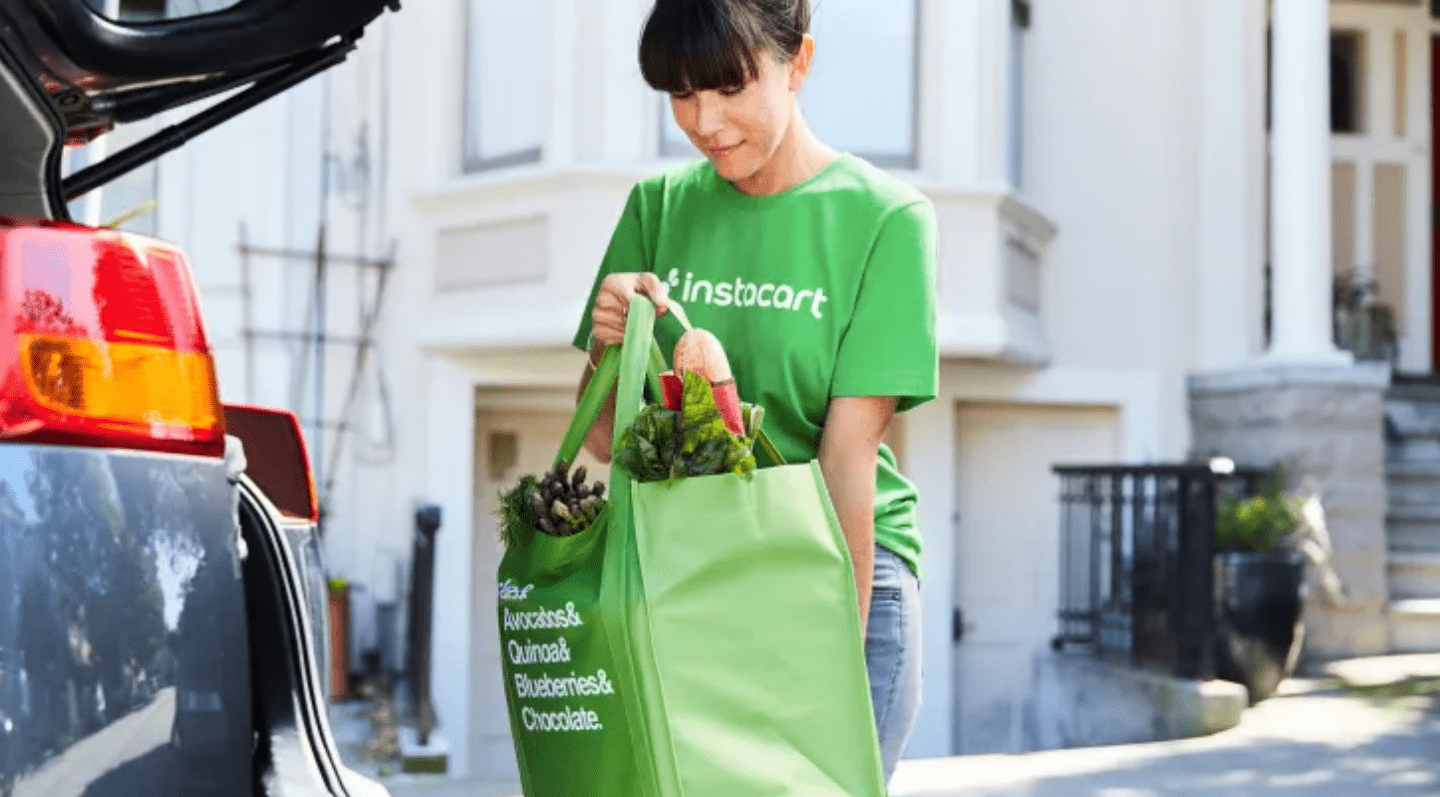Instacart said it’s slashing its valuation by almost 40% to about $24 billion, to reflect this year’s selloff in technology stocks.
The grocery delivery company was valued at $39 billion in March 2021, when it raised $265 million. That made Instacart one of the most valuable venture-backed companies in the U.S.
However, with the Nasdaq down 12% from its November high and numerous newly public tech companies down significantly more than that, Instacart is telling its employees and potential recruits that upcoming stock awards will be issued at a much lower price, making equity packages more attractive and in alignment with market conditions.
“Markets go up and down, but we are focused on Instacart’s long term opportunity to power the future of grocery with our partners,” an Instacart spokesperson said in a statement.
For Instacart, the last few years have been a roller-coaster. Faced with a challenging business model heading into 2020, the company got a major boost during the Covid-19 pandemic as many consumers cut trips to the supermarket and turned to online grocery orders.
In July, shortly after Instacart’s big financing round, the company named ex-Facebook executive Fidji Simo as CEO, succeeding founder Apoorva Mehta.
After DoorDash’s blockbuster stock market debut in late 2020 and a rally in emerging tech stocks through most of last year, Instacart was viewed as a prime IPO candidate for 2022. Then came the twin concerns of accelerating inflation and projections for higher interest rates, which sent risky assets into a tailspin starting in November.
The selloff gained steam after Russia’s attack on Ukraine last month added global instability and a further rise in energy prices into the mix. DoorDash has lost more than half its value since mid-November.
The valuation cut isn’t a cure-all for Instacart, which is now under pressure to show it can sustain its business momentum as the pandemic wanes and the labor market tightens. Employees who received stock grants at higher prices need to see a rebound in order to make money on their equity.
Instacart said its business outlook remains strong, adding that it has more than $1 billion in cash in the bank. The company is also trying to expand beyond its core marketplace, announcing this week a software suite to sell to supermarkets, along with a fulfillment service called Carrot Warehouses, which is intended to help grocers offer 15-minute delivery.

